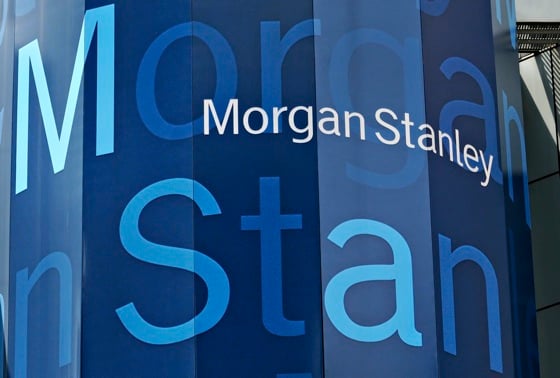Sources say traders at Morgan Stanley lost tens of millions of dollars in a big wager on inflation. Apparently, the bank is still working to get out of the bets.
Morgan Stanley, the firm targeting a 2 percent market-share gain in fixed-income trading this year, was burned by a wager on U.S. inflation expectations in the second quarter, three people informed of the dealings said.
The bank's interest-rates trading group lost at least tens of millions of dollars on the trade, which the firm has been unwinding, two of the people said, declining to be identified because the transaction isn't public. Mary Claire Delaney, a Morgan Stanley spokeswoman, declined to comment.
Traders at the bank bet that inflation expectations for the next five years would rise in Treasury markets, while forecasts for the next 30 years would fall, according to two of the people. Such wagers on so-called breakeven rates involve paired purchases and short sales of Treasuries and Treasury Inflation Protected Securities, or TIPS, in both maturities.
The loss is a setback for Morgan Stanley as it seeks to boost revenue at its fixed-income trading unit, which last year posted less than half the amount of U.S. rivals including Goldman Sachs Group Inc. Chief Executive Officer James Gorman, 52, said in February that improving fixed-income trading performance is his top priority.
The interest-rate group is run by Glenn Hadden, who Morgan Stanley hired from New York-based Goldman Sachs in January. The move was part of a larger shakeup in the business as the firm replaced fixed-income trading head Jack DiMaio, 44, with Ken deRegt, 55. Hadden didn't respond to a message left at his office.
The TIPS market was roiled last week by the combination of a slump in the price of crude oil and a stronger-than-expected auction of new 30-year TIPS.
Hurt by Oil
Declining crude oil prices disproportionately hurt the value of TIPS maturing within five years because they have fewer remaining interest payments that can benefit from a rebound in prices. The five-year breakeven rate dropped to 1.88 percent yesterday from 2.04 percent at the end of May, indicating underperformance by five-year TIPS relative to nominals.
The 30-year breakeven rate climbed to 2.57 percent yesterday from 2.42 percent at the end of May, indicating outperformance by the 30-year TIPS relative to nominals. The June 23 auction was awarded to investors at a lower-than- expected yield last week, a sign demand outpaced dealers' expectations. The TIPS drew a yield of 1.744 percent, 4.8 basis points lower than where they were trading at the auction deadline.
‘Tough Sell'
Morgan Stanley analyst Subadra Rajappa wrote in a note to clients before the auction that it would likely be a “tough sell” because of month-end balance sheet constraints and the end of the Federal Reserve's Treasury purchase operations dubbed QE2.
The spread between the 30-year and the 5-year breakeven rates, which Morgan Stanley was said to be short, has more than tripled to 69.2 basis points yesterday from a low of 19.7 basis points on May 2.
Even without the loss, Morgan Stanley's second-quarter fixed-income trading revenue is expected to drop from the first quarter amid weak trading volumes, low levels of client leverage, widening credit spreads in high-yield and sovereign assets, and declining volatility, Keith Horowitz, a Citigroup Inc. analyst, wrote in a report last week.
Revenue from fixed-income trading probably will be 25 percent less than a year earlier, Chris Kotowski, an analyst at Oppenheimer & Co. in New York, said in a note last week.
Morgan Stanley is seeking a 2 percentage point market-share gain compared with the top nine U.S. and European investment banks, Chief Financial Officer Ruth Porat said earlier this month. The firm had about a 6.5 percent market share last year, and 6 percent in the first quarter, according to Fiona Swaffield, an RBC Capital Markets analyst.
Eight analysts have cut their earnings estimates for Morgan Stanley in the past four weeks, according to data compiled by Bloomberg. Analysts predict the firm will earn 53 cents a share, according to the average of 22 estimates compiled by Bloomberg.
--Bloomberg News--







